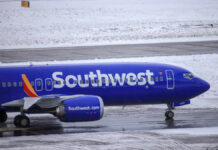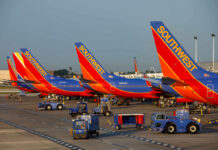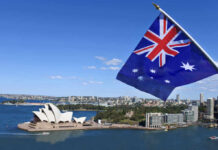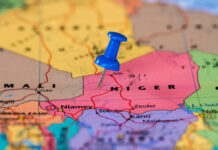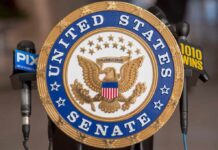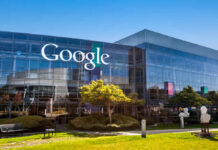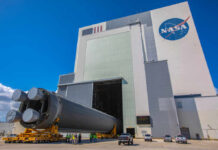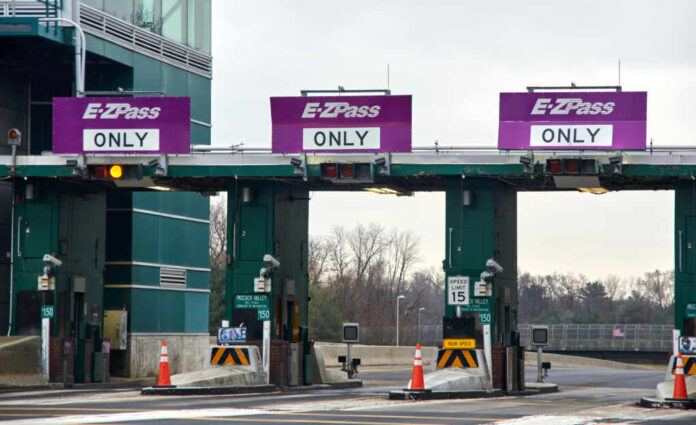
Deep-blue New York City will soon be implementing congestion pricing policies for tolls that will lead to skyrocketing costs for those commuting in the city.
The new daily toll costs will be roughly $15 and up for drivers traveling in Manhattan south of 60th Street, though there will be exceptions that include FDR Drive and the West Side Highway, according to Axios. This burdensome policy has taken years to develop by the city’s far-left government and will go into effect sometime in June — though an exact date has not been announced yet.
#NYC’s elitist new congestion toll will hurt working class commuters, especially those who work to keep us safe. How dare #NYC put our first responders financial well being at risk, in order to do their jobs. @NYCMayor @GovKathyHochul shame on you for hurting our first responders https://t.co/uJaYiRy4FB
— Curtis Sliwa (@CurtisSliwa) December 26, 2023
The policy, which is the first of its kind in the U.S., has faced significant backlash and even legal challenges — as New York City residents and advocacy groups have argued that the increased toll costs will directly harm small business owners and travelers.
“It’s going to kill Broadway,” Susan Lee, president of New Yorkers Against Congestion Pricing, one of the groups suing the Metropolitan Transportation Authority (MTA), declared in a statement to Axios. “You’re going to charge me $15 to come in to see a play, in addition to what I’m already spending?”
Experts have predicted that the policy will reduce traffic in the toll area by roughly 17% while also supposedly reducing pollution, with the money raised by the toll being allocated to upgrade New York City’s public transportation system.
During the “peak hours” of 5 a.m. to 9 p.m. during the week and 9 a.m. to 9 p.m. during weekends, drivers will be forced to pay a $15 toll in the area, while “off-peak hours” will cost just $3.75. The new policy will also lead to buses and trucks paying up to $36 depending on the size of the vehicle and its purpose, while residents taking taxis will pay an additional $1.25 per ride and ride-sharing service customers will pay an extra $2.50 per ride.
The policy has somehow received a 60% favorability rating via public comments, but its enforcement may be hampered by the six lawsuits that the government is currently facing over the change. One of the legal challenges is being spearheaded by New Jersey Gov. Phil Murphy (D), who has complained about supposed environmental concerns that his state will face in response to the toll increase.
“You are not eliminating pollution, you are just displacing it from Manhattan to New Jersey,” the Democrat governor said, according to ABC 7. “And you’re charging our commuters an exorbitant fee on top of that.”
The new policy is also facing opposition from another surprising source — former New York Gov. Andrew Cuomo (D), who signed the measure into law back in 2019.
“Many things have changed since 2019 and while it is the right public policy, we must seriously consider if now is the right time to enact it,” Cuomo argued in an op-ed for the New York Post published in March. “What impact will an additional $15 entry surcharge have on New York City’s recovery in this moment — when the migrant crisis, crime, homelessness, quality of life and taxes are all pressing problems?”
While the policy is aimed at forcing more New Yorkers to take public transit, it comes at a time when less than half of New York City residents report feeling safe while riding the subway during the daytime due to rampant crime, according to a Citizens Budget Commission poll from March.
Cities like NYC are enacting congestion pricing scams to encourage people to get out of their cars and experience all the wonders public transportation has to offer…pic.twitter.com/fG5mSmHrLZ
— Lauren Chen (@TheLaurenChen) March 14, 2024



